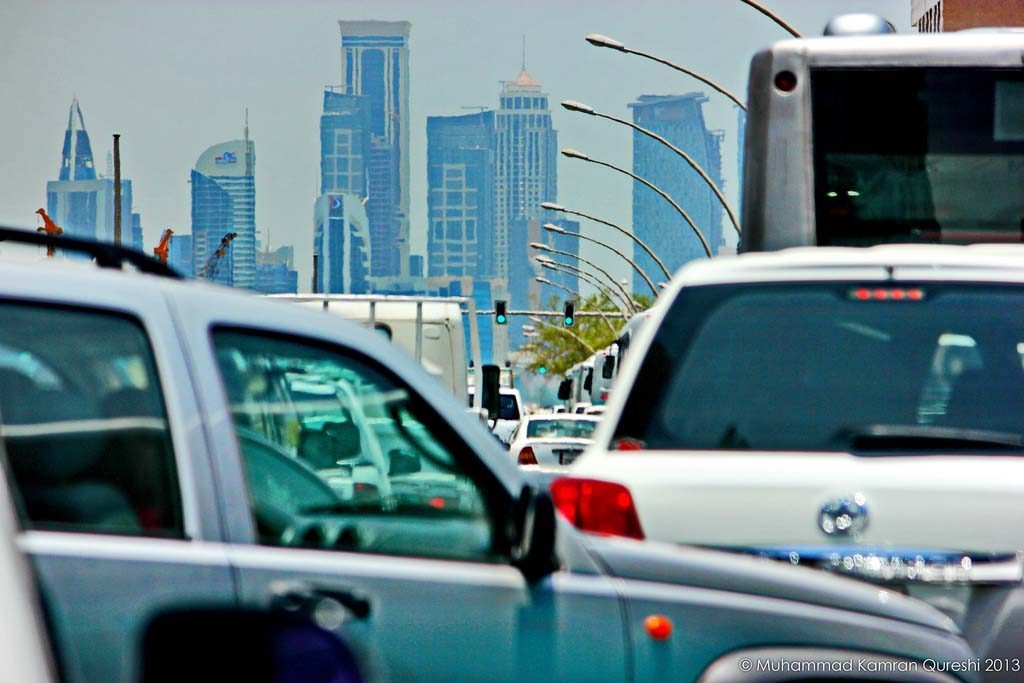Qatar’s Advisory (Shura) Council has recommended that the government re-evaluate the number of driver’s licenses issued to expats, as part of an effort to decrease congestion on the country’s roads.
The advice follows a ban on driver’s licenses for laborers, which was introduced suddenly last June, but which appears to have had little effect on congestion.
The expanding population is apparent on Qatar’s roads. In the first two months of this year, some 16,244 new vehicles were added to the roads, while 16,931 licenses were granted, the whopping majority (more than 94 percent) of them to expats, according to figures from the Ministry of Development Planning and Statistics.
According to the Peninsula, the council has also suggested that:
- The government build more multi-story car parks;
- Introduce more public transportation options including school buses and employer-provided buses for big groups of employees; and
- Spreading out commercial areas around the city to avoid bottlenecks.
It has also recommended that the Qatari Engineers Association should be consulted on the possible redesign of entry and exit points on major roads to help reduce congestion.
Traffic safety strategy
The Advisory Council made its recommendations to the Cabinet as the government awaits a new report on congestion by the National Committee for Traffic Safety, which is expected to be completed within three months.
In the past, the committee has blamed the city’s traffic woes on its booming population (and the subsequent inevitable increase in new cars), the fact that the city has “too many” roundabouts, and unified working hours for government departments.
Last year, the government launched a 10-year National Road Safety Strategy (NRSS), which aims to save at least 800 lives and prevent 2,000 serious injuries over the next decade.
Various strategies to improve road safety have been introduced recently, including the installation of more speed cameras and a road construction and improvement program, which has included converting many of the city’s roundabouts into intersections.
Despite these efforts, however, road accidents and congestion continue to plague Qatar’s drivers, with significantly more incidents being recorded in February than in January this year.
Parking problems
Drivers in Doha don’t just contend with problems on the roads – they also often struggle to find somewhere legal and convenient to park their cars, so a move to build more multi-level parking facilities would be good news to many.
In 2012, the Ministry of Municipality and Urban Planning proposed several ideas to ease the problem, a number of which, including charging for parking popular areas, the construction of more parking garages in busy areas such as Souq Waqif, and the building of a Metro system to improve public transport, have been acted upon.
However, a recommendation to house people near their workplaces, allowing pedestrians to walk to work, has yet to see any significant progress.
Thoughts?







